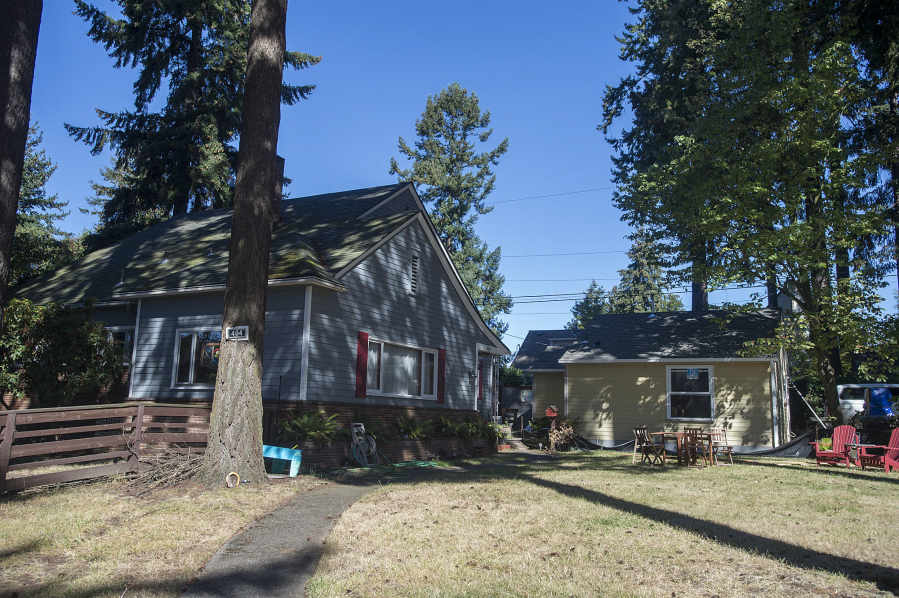Vancouver city councilors were split over whether an ordinance updating accessory dwelling units standards should become law as is, but at the end of Monday’s council meeting it narrowly passed 4-3.
The ordinance makes several changes to the way Vancouver regulates ADUs, secondary residential units built within or next to single-family homes. The more controversial changes that passed eliminate on-site, off-street parking requirements and owner-occupancy requirements, which means both the main house and ADU can be rentals.
Encouraging ADU development by relaxing restrictions was a recommendation of the Affordable Housing Task Force that met between May and December 2015. Mayor Tim Leavitt, along with Councilors Alishia Topper and Anne McEnerny-Ogle, sat on the task force. Rules and regulations around accessory dwelling units haven’t changed substantially since 2004, and only about 65 have been legally built since 2000. Prior to Monday’s meeting the updates had been discussed at an open house and city council and planning commission workshops.
Before Monday evening’s vote, people spoke for and against the changes.
Stephanie Turlay, Councilor Bill Turlay’s wife, said she finds it difficult to understand the “pack ’em and stack ’em attitude” considering existing congestion in Vancouver. She’s worried about property values going down as ADUs are built.




